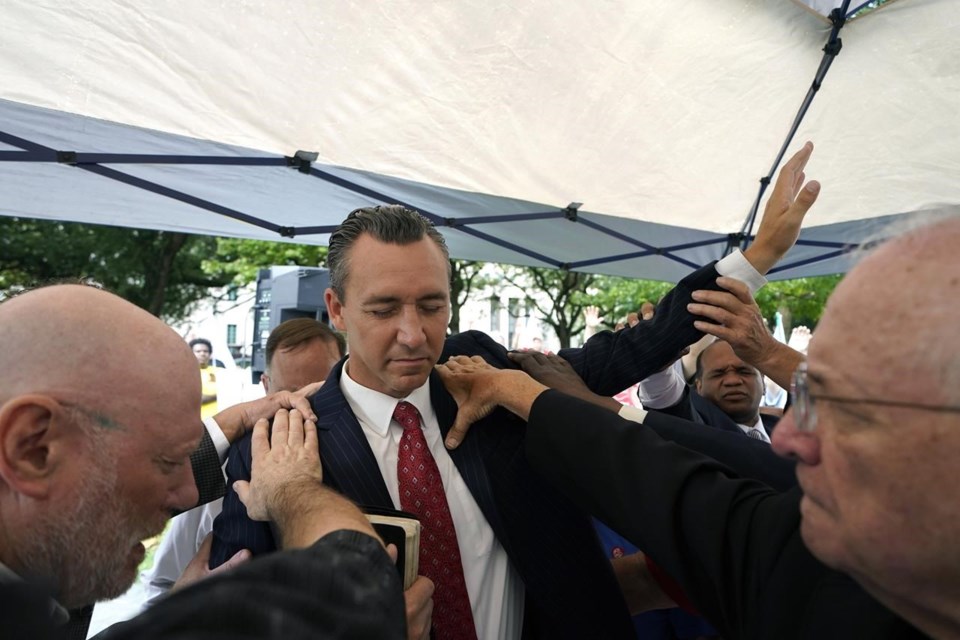NEW ORLEANS (AP) — An outspoken Christian conservative attorney from Alabama has asked a federal appeals court to revive a Louisiana pastor’s damage claims against state officials over long-expired COVID-19 restrictions.
A federal judge this year dismissed minister Tony Spell’s lawsuit against Gov. John Bel Edwards and others over enforcement of the ban. Spell drew national attention for his flouting of the restrictions early in the pandemic at his church in Central, near Baton Rouge.
One of Spell's attorneys is Roy Moore, the former Alabama Supreme Court justice and Senate candidate. Moore insisted in arguments this week before a panel of judges from the 5th U.S. Circuit Court of Appeals that the state had no authority whatsoever to restrict church gatherings.
Panel members appeared skeptical of that claim in arguments recorded as they were held Monday in Fort Worth, Texas. But they raised the question of whether Spell’s church was unfairly restricted, compared with other public gathering places, such as shopping mall food courts.
“They have treated us differently,” Moore said. “But the basis of our argument is there is no jurisdiction to limit a church attendance.”
Spell has had legal victories in his fight with the state. Louisiana's Supreme Court, in May, threw out state charges against him, ruling 5-2 that Edwards' restrictions in place at the time violated Spell's freedom of religion.
But his lawsuit that includes claims for damages over the gathering restrictions was thrown out by U.S. District Judge Brian Jackson in Baton Rouge. Jackson ruled in January that the lawsuit was moot because the restrictions expired long ago.
And Jackson rejected Spell’s request for damages from state and local officials, ruling that "there is not now, and never has been, a ‘clearly established’ right to unrestricted religious assembly, and at all relevant times Defendants reasonably believed that they were acting within the constitutional limits set by the Supreme Court and the Fifth Circuit.”
The appellate judges on Monday closely questioned Josh Force, an attorney arguing for the Edwards administration, on whether church assemblies were treated unfairly when compared with other public gatherings, including crowds at shopping malls and Black Lives Matter protests.
“Isn't the food court at the mall at least as dangerous as the worship center?” Judge Jennifer Walker Elrod asked.
Force argued that Edwards was acting under the best advice of public health officials at the time as to what types of gatherings were safe.
Hearing the case were Elrod and 5th Circuit Chief Judge Priscilla Richman, both nominated to the circuit by President George W. Bush; and Judge Andrew Oldham, nominated by President Donald Trump.
Kevin Mcgill, The Associated Press



